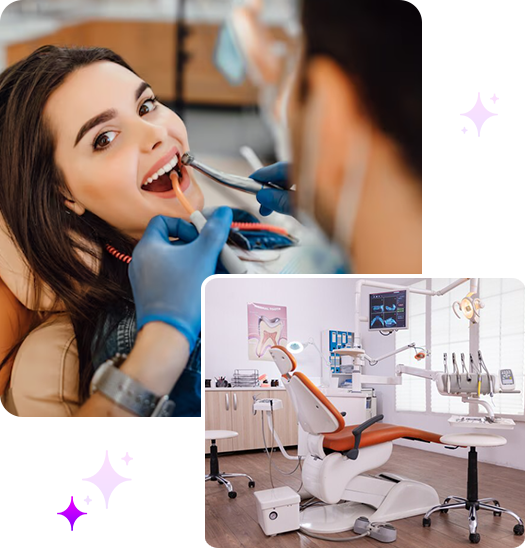Selecting the right equipment for your dental clinic is one of the most important decisions you’ll make as a practitioner. High-quality tools and machines are essential for delivering excellent patient care. Reliable tools and machines are essential for ensuring the success of your practice. Setting up a new clinic, upgrading an existing one, or exploring a dental practice for sale all require understanding dental equipment. This understanding is crucial for success in the field. It can make a significant difference in your success. Here’s a comprehensive guide to help you make informed choices for your clinic.
1. Assess Your Needs
Before purchasing any equipment, evaluate the specific needs of your dental clinic.
- Specialization: Are you focusing on general dentistry, orthodontics, cosmetic procedures, or pediatric care?
- Patient Volume: Consider how many patients you see daily and the types of procedures you perform most frequently.
- Space Constraints: Ensure the equipment fits well within your clinic layout without overcrowding the workspace.
Clearly defining your requirements helps prioritize essential equipment. This prevents overspending on unnecessary items
2. Focus on Quality and Reliability
Dental equipment is a significant investment. So it’s crucial to choose products from reputable manufacturers.
- Durability: High-quality equipment lasts longer and performs consistently.
- Technology: Look for modern, tech-enabled tools that enhance efficiency and patient comfort. For example, digital imaging systems and CAD/CAM technology offer precision and speed.
- Compliance: Ensure the equipment meets industry standards and regulations for safety and hygiene.
3. Prioritize Patient Comfort
Patients’ comfort is a top priority in any dental clinic. Comfortable and ergonomic dental chairs improve the overall patient experience. Quiet handpieces and modern anesthesia delivery systems also contribute to a better experience.
Advanced diagnostic tools, like intraoral cameras, can help educate patients about their conditions. This can build trust and confidence in your care.
4. Invest in the Essentials
While each clinic’s requirements may vary, here’s a list of essential equipment to consider:
Dental Chairs and Delivery Systems
The dental chair is the centerpiece of your clinic. Choose models with adjustable positions, ergonomic designs, and integrated delivery systems for tools and utilities.
Sterilization Equipment
Maintaining hygiene is critical in dental practice. Invest in autoclaves, ultrasonic cleaners, and other sterilization tools to ensure infection control.
Diagnostic Tools
Digital X-ray systems, intraoral cameras, and cone beam CT scanners are essential for accurate diagnosis. They are also essential for treatment planning.
Handpieces and Instruments
Choose high-quality handpieces for drilling, polishing, and scaling. Ergonomic designs reduce strain on your hands during long procedures.
Dental Lab Equipment
If you offer in-house lab services, invest in milling machines, 3D printers, and other lab equipment. This will help you produce crowns, dentures, and orthodontic devices efficiently.
5. Consider Your Budget
Budgeting plays a key role in selecting the right equipment.
- Prioritize Essentials: Focus on purchasing essential equipment first and consider leasing or upgrading other tools later.
- Buy Smart: Look for discounts, bundle deals, or refurbished equipment from trusted sellers.
- Plan for Maintenance: Factor in the cost of maintenance and servicing when setting your budget.
6. Explore Options for Used Equipment
Opening a new clinic or acquiring a dental practice for sale can help reduce costs. This is possible without compromising quality by purchasing used or refurbished equipment.
- Reputable Sellers: Work with certified dealers who provide warranties and maintenance support for pre-owned equipment.
- Inspection: Inspect the equipment thoroughly for wear and tear before purchasing.
Used equipment can be a cost-effective solution, especially for clinics operating on a tight budget.
7. Look for Scalability
As your practice grows, your equipment needs will evolve. Choose equipment that can scale with your practice or integrate with newer technologies. Opt for modular dental chairs that can accommodate additional tools. Upgrade your diagnostic systems as your patient volume increases.
8. Research Suppliers Thoroughly
Working with reliable suppliers ensures you receive high-quality equipment and excellent after-sales support.
- Reputation: Look for suppliers with positive reviews. Choose suppliers with a proven track record.
- Support: Choose vendors who offer training, installation, and prompt technical assistance.
- Warranty: Ensure the equipment comes with a comprehensive warranty and service plan.
9. Stay Updated on Trends
Dental technology is advancing rapidly. Staying informed about the latest innovations helps you choose equipment that keeps your clinic competitive. For instance:
- Digital workflow solutions streamline operations and improve efficiency.
- Artificial intelligence (AI) aids in diagnostics and treatment planning.
- Portable dental units enhance flexibility for mobile or outreach services.
10. Test Equipment Before Buying
Whenever possible, test the equipment before purchasing it. This allows you to assess its ease of use, functionality, and compatibility with your clinic’s workflow.
- Demo Sessions: Attend trade shows, workshops, or supplier demonstrations.
- Feedback: Talk to colleagues or industry professionals who have experience with the equipment.






Comments